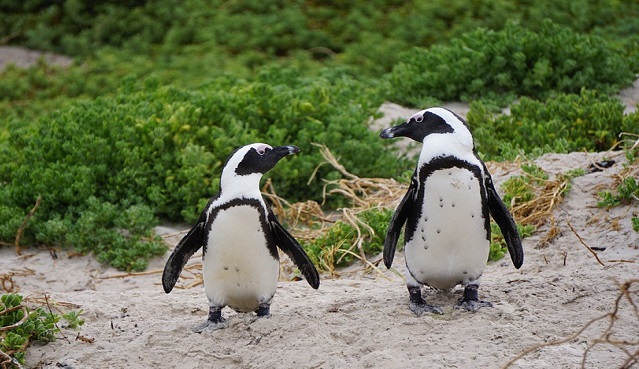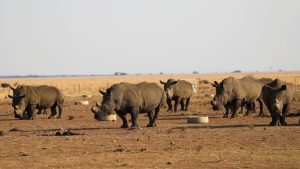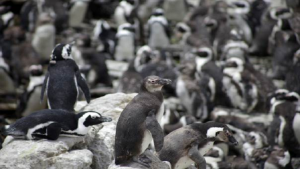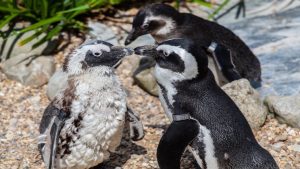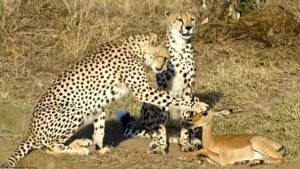Scientists and conservationists have embarked on a 24-hour dive and walk at uShaka Marine World in Durban to raise awareness for International African Penguin Awareness Day.
90% decline
According to World Wide Fund South Africa, the African Penguin species has declined by over 90% from over a million breeding pairs estimated in the early 1900s in South Africa to around 10-000 breeding pairs.
The species is only found in southern African waters.
Raising awareness around the African penguin
According to the World Wide Fund for Nature South Africa, the International Union for Conservation of Nature (IUCN) first classified the African Penguin as “endangered” in 2010. They say the population has continued to decline at an alarming rate of between 5 to 10% per year.
The African Penguins live on land but forage for food in the ocean. Over 30 divers took turns in diving in the fish tank at Ushaka Marine World in Durban while others chose to walk along the promenade for 24 hours raising awareness about the plight of African Penguins.
Scuba Officer at Durban undersea club, Brian Hart says the diving has helped create awareness and educate people about the African Penguin.
Hart explains, “An average diver will go out on a boat or on the shore and dive for maybe an hour but this event is just a continuous amount of dives taking place even at 2 o’clock in the morning. So it’s very different and so it creates awareness and obviously people are excited about it and putting it out on social media in that way creating awareness because of the international penguin’s day and obviously allowing people to read up more as to why the African Penguin is endangered.”
Closure of breeding colonies
The Department of Forestry, Fisheries and the Environment recently announced the partial closure of fishing around some African Penguin breeding colonies. This announcement acknowledges the importance of island closures in enhancing successful African Penguin breeding efforts.
The African Penguin feeds on sardines which are also on the decline.
Executive manager, at The South African Association for Marine Biological Research (SAAMBRA) in Ushaka Maryke Musson says many factors including climate change play a role in the decline of the African Penguin.
He says with climate change fish stock have also move around meaning that penguins have to move further away from their nesting islands to acquire food, taking them much longer to get back to the nest too feed their chicks who often die.
Excessive marine trafficking
“But there are all sorts of other risks to penguins as well one being excessive marine traffic and marine noise, especially near nesting islands. So, there is a combination of factors contributing to these poor birds really struggling in the wild and the numbers continuing to drop,” adds Musson.
Assistant curator of mammals and birds at uShaka Marine World, Craig Smith says all major stakeholders need to be involved in trying to protect and preserve the African Penguin.
Smith elaborates further, “We need to try and motivate government we need to try and motivate landowners that have a say in those areas to help us establish areas which would be suitable for them, but it’s not only land areas because they feed in the sea so it’s protecting the marine areas as well. A number of protected marine areas have been recently promulgated to try and help not only the African Penguin but also a number of other marine species.”
Musson says an unpolluted ocean and environment play a major role in the survival of not only the African Penguins but all marine life. She urged people to keep the environment and ocean clean to preserve all wildlife.
Collaborative efforts to save African penguin


